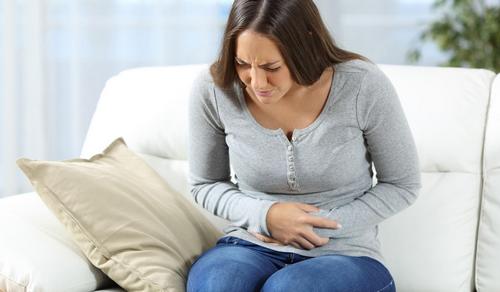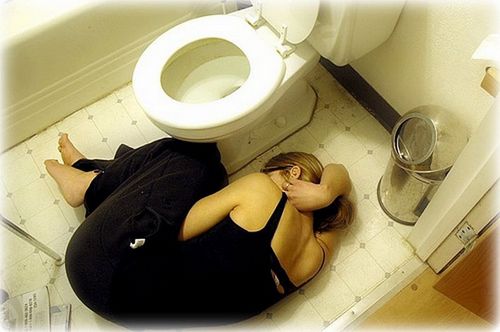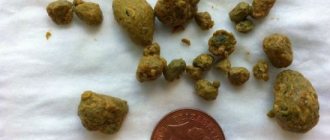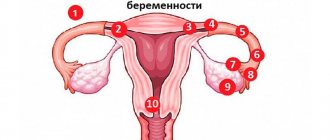What can cause a seething stomach and diarrhea, and what diseases can cause it?
Healers have been working on solving the problem of intestinal diseases since ancient times. Their research and achievements made it possible to save many lives that could have been cut short in their prime. They helped to understand why the stomach was seething, and diarrhea then destabilized the patient’s condition. As it turned out, disruption of the intestines occurs for reasons that can be divided into two large groups: infectious and non-infectious.
Infectious
Infectious factors are factors of environmental changes in the gastrointestinal tract, which are activated due to infection of the body by bacteria, viruses, and fungal spores. Most often, diseases of this group affect the body in the summer, when food begins to deteriorate at an increased rate:
- Salmonellosis. This disease is transmitted to humans through contaminated eggs, milk from sick cows, or meat from unhealthy animals. Obvious signs of the disease were a sharp increase in body temperature, vomiting, and sometimes convulsions. The patient's stomach is seething and diarrhea is accompanied by pronounced flatulence. To avoid infection, it is necessary to avoid purchasing products in areas not intended for trade. It is also forbidden to try unprocessed thermally processed products on the market. Meat and fish must be thermally processed as thoroughly as possible during cooking.
- Dysentery. Transmission of pathogens occurs through drinking contaminated water or contact with feces of a person with dysentery. The microorganism that infects the body is the dysentery bacillus. During the development of the disease, a process of intoxication of the entire body occurs. The patient feels severe weakness. This condition is very dangerous for people whose bodies are either already weakened or have not yet gotten stronger, that is, for the elderly and newborn children. The temperature of the body very quickly rises to critical levels. Patients experience stomach turmoil and diarrhea that enriches the stool with mucous secretions. Careful adherence to hygiene rules can help prevent infection. Thus, washing your hands after visiting the restroom and thoroughly rinsing children's toys can be a reliable barrier against illness.
- Botulism. This intestinal infection occurs much less frequently than the previous ones. The causative agent of the disease is Clostridium botulinum, which belongs to the group of spore-forming rods. It is very dangerous to health because it produces botulinum toxin, a poison that affects the nervous system. The following signs of the disease have been recorded: diarrhea, paralysis, increased gas formation, pallor, impaired coordination of movements and recognition of the location of the body in space, bloating, blurred vision. At the same time, there are practically no problems with body temperature, since it ranges from 36.60 to 370. Mushrooms, fish, meat or home canned foods can become sources of infectious contamination. An alternative source is the contact of soil contaminated with a stick on skin that has lost its integrity. To avoid contamination, jars of home canned food must be boiled for at least half an hour. The kitchen should always be clean, almost sterile. Be sure to treat any wound, even the smallest one, that may have gotten soil on it with antiseptic solutions. At the first signs of infection, of course, immediately call an ambulance.
- Intestinal viruses. Their number is simply huge. A characteristic feature is the presence of signs of a cold, such as a runny nose, cough or inflammation of the tonsils. All this is against the background of water diarrhea in adults and children, bloating, flatulence and seething in the abdomen. Pathogens are transmitted by airborne droplets, through contact with saliva or feces of a sick person. The period of exacerbations is considered to be autumn and winter, as with most viral infections.
- Cholera. Vibrio cholerae, the causative agent of the disease, is very dangerous. It spreads very quickly, causing epidemics that are terrible in their unpredictability and strength. In ancient times, this virus not only destroyed cities, but also almost brought many European countries to their knees. The most striking symptoms were severe dehydration of the body, in which a significant role is played by diarrhea with water, muscle cramps, vomiting, and dry skin, due to which the epidermal tissues shrink, forming folds. The temperature remains normal. The pathogen enters the body through the contaminated surface of vegetables and fruits, as well as through the consumption of less than pure water. To avoid infection, you must diligently follow the rules of hygiene, and do not forget to pour boiling water over the fruits of gardens and vegetable gardens.
Non-infectious

Problems with the functioning of the gastrointestinal tract can also arise without the influence of infectious infections:
- Sedentary lifestyle. Because of it, both the muscle tone of the intestines and the state of the microflora are disrupted. Walk more in the fresh air, play sports - and the problem will disappear by itself.
- Allergy. If you have an individual intolerance to any product, and you know about it, then such a reaction will not be a surprise to you. Simply eliminate this product from your diet and undergo treatment with antihistamines.
- Poisoning. This reaction can occur after eating spoiled foods. Diarrhea is often accompanied by fever.
- Incompatibility of food consumed. Some extreme sports enthusiasts combine foods that, when combined, cause stomach turmoil and diarrhea. For example: cucumbers-herring-milk; kvass-borsch; water-melon. Avoid such combinations.
- Dysbacteriosis. There are many reasons for the appearance, ranging from banal overwork to overloading the body with antibiotics. As a result, the stomach is churning, and diarrhea does not allow you to go far from the solitude room. In addition, bloating, gas and flatulence complete the picture. Getting rid of the problem is not difficult: by using probiotics prescribed by your doctor, you can bring your body back to normal in a matter of days.
- Irritable bowel syndrome. This disease often visits people who constantly live under stress. Pain, diarrhea with water (sometimes, on the contrary, constipation), gas formation and bloating are signs of such nervous exhaustion. Avoid overloading the nervous system and stressful situations, take care of proper nutrition - and your condition will improve.
- Medicines and drugs with a laxative effect. Do not self-medicate, otherwise side effects in the form of diarrhea and flatulence will not be long in coming.
Pathological preconditions
Gases produced in the digestive organs can increase in volume several times due to the development of certain diseases in the digestive system. In this case, the appearance of negative signs will be accompanied not only by rumbling in the stomach, but also by nausea, diarrhea or constipation, rotten belching and constant acute pain in the abdominal cavity. Experts note the following pathological conditions:
- Mechanical flatulence. It is caused by the fact that some obstacle appears in the digestive tract, preventing the free passage of the gas mixture (tumors, narrowings or adhesions).
- Enzyme deficiency, that is, a pathological disorder in the formation and release of bile acids and the absorption process. This leads to the fact that the bulk of food enters the intestines unprepared for further breakdown, and fermentation and rotting begin there, increasing the production of gases.
- Inflammatory diseases of the gastrointestinal tract (Crohn's disease, pancreatitis, colitis). With their development, in addition to rumbling and flatulence, a person always develops diarrhea.
- Non-inflammatory pathologies of the gastrointestinal tract also provoke the appearance of rumbling sounds in the abdominal cavity. These diseases include dysbiosis and intolerance to certain nutrients. These ailments, which occur with increased gas formation, are also always accompanied by diarrhea.
- Psychogenic diseases also lead to the appearance of this unpleasant phenomenon. Overexcitation of the nervous system provokes the occurrence of muscle spasms in the intestines, which causes a decrease in peristalsis.
It often happens that several negative reasons overlap each other. This situation leads to the appearance of belching, acute pain and heartburn along with rumbling and bloating.
Treatment
Before prescribing treatment, specialists conduct a complete diagnosis of the body. Then, depending on the causes of the complication, complex treatment is prescribed.
First aid
In the first few hours of diarrhea, you need to support the body with the simplest means that you may have at hand. First of all, it is activated carbon. At the same time, you can’t get by with just one tablet; you’ll have to take 10 kg of tablets. It will absorb toxins formed in the body and weaken the severity of the disease. This does not include refusing medical help. If it was not possible to completely stop the problem, then the problem is the presence of a disease that stimulates intestinal dysfunction.
While you are waiting for the doctor, do not eat, even if you feel hungry. But you need to drink as much as possible. No juices, milk or anything like that: just clean water.
Medicines

The medications used by doctors when the stomach is churning and diarrhea does not allow you to relax depend on the nature of the problem. If this is an infectious infection, then a course of antibacterial drugs with antiviral properties or simply strong antibiotics is prescribed. Their effects are later smoothed out by probiotics, which are also useful in cases of dysbiosis. If the cause of the disorder is stress, then anti-stress relaxation therapy will be the best way to get rid of the problems. In each case, drugs are prescribed individually.
Folk remedies

The people also have many effective remedies. Very strong tea is one of them. Black peppercorns work just as well, and maybe even better: the balls swallowed whole work no worse than activated charcoal. Many old people use a hundred-gram glass of pervach with a teaspoon of ground black pepper to normalize their intestines: the mixture is terribly baking, but effective.
Special teas also help a lot. For example, a drink made from dried blueberries. Brew a spoonful of dry berries in a glass of boiling water, hold for 15 minutes and enjoy a drink that will get rid of problems. Blackberries work the same way, only you need to infuse them for half an hour, and drink 100 ml in the morning, lunch and evening.
2What to do if there are already microbes in the intestines?
If the rumbling in the stomach and diarrhea do not go away within 24 hours, this indicates that the person has been poisoned. In normal situations, the body is able to cope with intoxication within 2-3 days. Complex poisonings will last much longer.
In the first stages of poisoning, you should refuse food for the next few days. For those who have suffered from poisoning, water, rather than food, will be much healthier. Drinking plenty of fluids will help you recover faster. A glass of warm tea will help significantly speed up the healing process. But you should drink carefully, a little and in small sips. Otherwise, the stomach will be forced to vomit the resulting liquid.
Diarrhea and vomiting not only deprive the body of fluids, they take with them essential elements (such as sodium and chlorine). It is because of this that the body of a sick person responds well to a glass of boiled warm water in which kitchen salt has been mixed in advance. To restore potassium balance, you can use carrot or potato broth.
In order to prepare such a decoction, you do not have to be a cook. A couple of medium-sized root vegetables are grated on a coarse grater, then filled with 2 cups of cold water. Next, it will all boil for about 20 minutes. After this, the almost finished broth is filtered, cooled and salted (sprinkling a lot of salt is not recommended). A compote containing bananas, raisins and dried apricots will have no less beneficial effects. It is forbidden to eat them raw, since this raw food further injures the stomach.
No matter how things go, after a day or two you will need to start eating. You should start with something simple, such as bifid. It will have a beneficial effect on the microflora inside the intestines. You can also eat simple crackers made from white bread, a little oatmeal or rice porridge boiled in plain water.
Next, if there are no problems with food, you can move on to more complex foods. Milk porridge, scrambled eggs, soft-boiled eggs, etc. will be very useful. If the food goes well, then it’s time to move on to more serious things. You can cook meat or fish with a vegetable side dish (for example, potatoes or carrots); it is advisable to do all this in the form of a puree. It will be possible to go on a diet only after the body has recovered and gained strength.
By vomiting, the body tries to get rid of the bad food it has received. This is one of the fastest and most effective ways to fight germs in the stomach. Gastric lavage will be very useful. It is recommended to wash it with a very weak solution of potassium permanganate (in extreme cases, you can use kitchen salt). The prepared solution must be drunk until vomiting is felt. This procedure can be repeated up to 4 times. Thus, an already cleansed stomach, since there will be no harmful irritants in it, will no longer cause a constant feeling of nausea.
Methods for diagnosing the abdomen
If stomach turmoil and loose stools persist for more than two or three days, you should urgently seek help from a doctor. After listening to the complaints, he will conduct an examination, which includes:
- palpating the abdomen and performing a physical examination;
- conducting laboratory tests of blood, urine and feces;
- fibrogastroduodenoscopy.
These methods will help to identify the cause of the disease and assess the patient’s condition.

Calling emergency services for diarrhea

The cause of this phenomenon can be a serious illness, which without treatment will lead to death. Many patients are interested in the question of when is it necessary to call a doctor and hospitalization? Experts identify several symptoms such as:
- periodic cramps;
- nausea and vomiting for several days;
- deterioration of general condition;
- presence of high temperature for more than three to four days;
- strong gurgling and increased release of gases;
- the appearance of greenish stool with mucus;
- urine becomes cloudy or has a pinkish tint;
- yellowing of the whites of the eyes.
You can independently contact an infectious disease specialist or gastroenterologist with these signs. If the body is severely weakened, an ambulance must be called.











